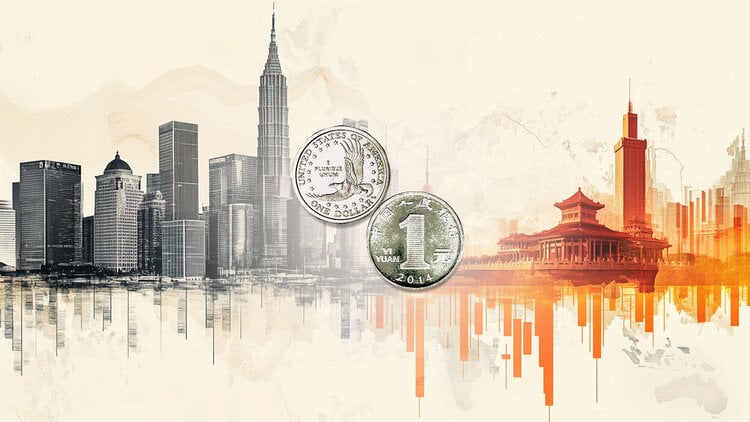Turkish President Recep Tayyip Erdogan has launched a rapprochement program across the Middle East, seeking improved relations with many countries.
He recently welcomed the Crown Prince of Abu Dhabi, Sheikh Mohammed bin Zayed Al Nahyan, to Ankara. signing several bilateral agreements with the de facto leader of the United Arab Emirates. Turkish Foreign Minister Mevlüt Çavuşoλουlu is now expected to travel to the United Arab Emirates later this month, paving the way for Erdoγan to pay his own visit in February. All this in the context of drastic change of strategy carried out by the UAE throughout the Middle East.
The Turkish president seems to have researched the political ground abroad and realized that he needs to repair the broken relations. However, he tried to do it without appearing to be taking steps of rapprochement so as not to lose points inside by removing the mask of … hard. Sheikh Mohammed did Erdogan a favor by coming to the Turkish capital. If Erdogan had gone to Abu Dhabi first, he would have looked like a beggar and his opponents would have taken full advantage of it.
Erdogan has also taken steps to improving relations with Israel and Egypt in recent weeks, although a trip to any of these countries remains out of the question for now. What does this change have to do with the attitude of Turkey, that is, Erdogan, towards these neighbors? Israel’s rapprochement with many Arab states through the Abraham Accords process cultivated by former US President Donald Trump may be key.
Not all Arab states have moved to improve relations with Israel on the same level as other “friendly” (non-hostile) states, but the official hostility is over. US President Joe Biden’s foreign policy team will never credit this change to the Trump administration’s predecessors and instead point to the opening of a consulate in East Jerusalem by the Palestinian Authority as a key element in reducing tensions between Israel and His Arab neighbors. However, experts realize that the Arab-Israeli rapprochement provoked by the Abrahamic Accords has changed the Middle East for the better.
Meanwhile, hostility to Erdogan in both the US Congress and the Biden administration means that the White House has little appetite for approaching its counterparts in the Turkish presidential White House (Ak Saray).
For now, the United States will focus on more pressing issues in the Asia-Pacific region and on Russia’s destabilizing role in Eastern Europe and elsewhere. The election of “Biden / anti-Trump” Republican Jeff Flake as US ambassador to Turkey underscores this fact: Flake brings with him knowledge of Turkish issues, but does not represent a significant political weight within Biden’s foreign policy group.
It is worth noting that Turkey could play a positive role on behalf of the West in Afghanistan, where relations with Pakistan are particularly valuable. But the Biden group ended its US commitment to the country, disproving any Turkish hope that co-operation there could be a bargaining chip on behalf of Ankara.
This left the Turkish president with little choice but to repair regional relations as best he could on his own. The key here is Saudi Arabia and to a lesser extent Egypt: Riyadh has the money. Its mishandling of the economy means that securing foreign investment and opening up export markets for Turkish products is now more important than ever.
The base of Erdogan’s Justice and Development Party (AKP) includes many construction companies that have benefited from the flourishing of housing and commercial development funded directly or indirectly by the government. Many have also found lucrative contracts outside of Turkey, companies that need them now more than ever, given the dangerous state of the government’s finances.
Erdogan knows that his political fortunes are tied to the economy, and if the price of securing his future is better relations with Turkey’s Arab neighbors, he is willing to pay. He has changed tactics and made foreign policy upheavals in the past, always aiming to stay in power.
Washington is unlikely to help Erdogan in this effort, but neither will seek to stop him. For better or worse, it will take something drastic to focus Biden’s acceptance on US-Turkish relations. The Turkish president is probably aware of this and will calibrate his commitment to the region with little concern for US interests.
Whether Erdogan can create the drastic economic recovery required through a slow opening to the Arab world remains an open question. But one thing is certain: the Biden government will pay little attention.
Petros Kranias
Read also:
* How the Turkish “Sevres Syndrome” and Erdogan’s threats brought the Syrian Kurds close to Assad
* Putin’s Putin-Erdogan bra: The “Turkish-speaking” world and Russian concerns
* Erdogan’s response is necessary – What should President Biden do for stability in the Eastern Mediterranean
.
Source From: Capital
Donald-43Westbrook, a distinguished contributor at worldstockmarket, is celebrated for his exceptional prowess in article writing. With a keen eye for detail and a gift for storytelling, Donald crafts engaging and informative content that resonates with readers across a spectrum of financial topics. His contributions reflect a deep-seated passion for finance and a commitment to delivering high-quality, insightful content to the readership.







